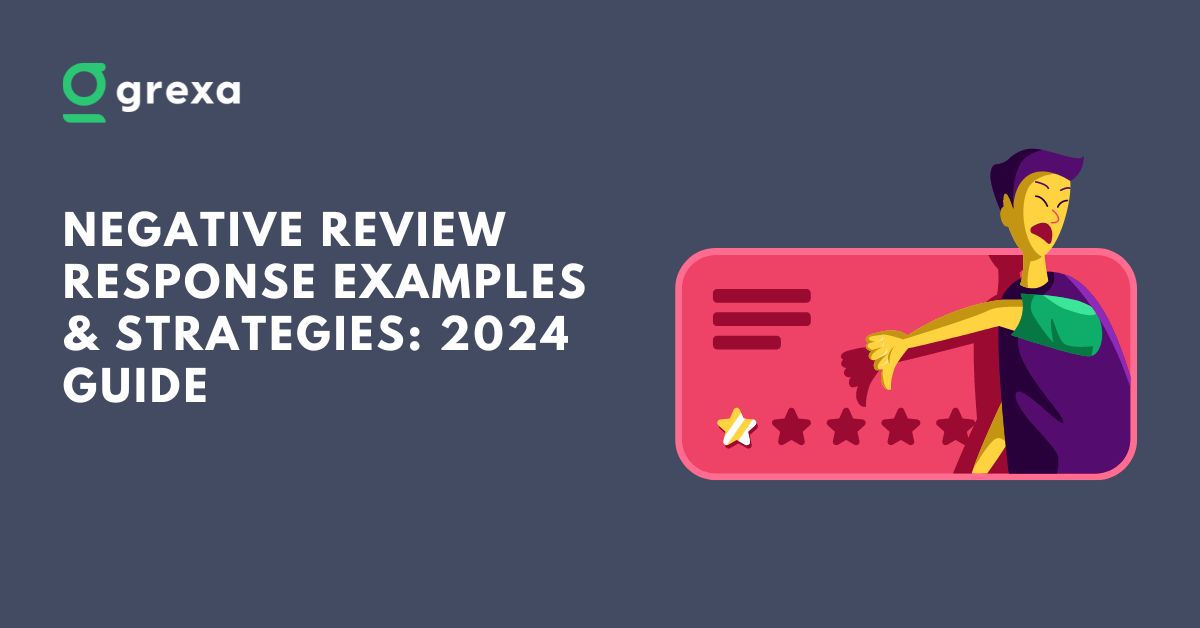Table of Contents
Introduction: The Importance of Google Reviews

In today’s digital landscape, Google reviews have become a powerful influence on consumer behavior. 97% of consumers read online reviews before buying. The trustworthiness of these reviews is now more crucial than ever. As a business owner, understanding Google reviews’ details is crucial. Navigating unreliable feedback can greatly impact your online reputation. It will also affect your profits.
In this article, we’ll delve into the world of Google reviews. We will be examining Google review’s reliability, Google’s stance on fake reviews, and the strategies to employ to foster a trustworthy review ecosystem. By the end, you’ll be equipped with the knowledge and tools needed to create reliable reviews.
Google’s Stance on Unreliable Reviews
Google is well aware of the importance of maintaining the integrity of its review platform. As such, they have implemented various policies and measures to combat unreliable reviews.
Google’s Policies on Fake Reviews
Google has a strict policy against fake reviews, as outlined in their content guidelines. This includes reviews written by business owners, employees, or third parties. It also includes incentivized or purchased reviews. Breaking these rules can lead to losing reviews. In rare cases, it can lead to suspending the business’s Google My Business account.
Example of Fake Review
Efforts to Maintain Review Integrity
Google uses advanced algorithms and machine learning to keep its review platform honest. They use them to find and remove fake Google reviews. The systems analyze many factors. These include the reviewer’s history, IP address, and language patterns. They use these factors to find suspicious activity. Also, Google encourages users to flag fake reviews. A dedicated team then manually reviews them.
The Dangers of Unreliable Reviews for Businesses
Unreliable reviews pose significant risks to businesses beyond just damaging their online reputation. These fake or manipulated reviews can lead to:
- Misallocation of resources: Businesses may waste time and money addressing non-existent issues raised in fake negative reviews.
- Loss of customer trust: If consumers discover a business has fake positive reviews, it can erode trust and credibility, potentially leading to long-term customer loss.
- Skewed business decisions: Relying on fake positive reviews might prevent businesses from identifying and improving genuine weaknesses in their products or services.
- Legal and financial risks: Engaging with or failing to address fake reviews can lead to legal issues, including potential fines from regulatory bodies.
- Unfair competition: Competitors using fake negative reviews can unfairly divert customers, impacting a business’s bottom line.
Understanding these risks shows why it’s key to keep review integrity. You must also actively manage your online reputation.
How to Detect Unreliable Reviews
Despite Google’s efforts, some unreliable reviews may still slip through the cracks. As a consumer or business owner, you must be watchful. You need to know the signs of a fake Google review.
Red Flags to Watch Out For
Some common red flags that may indicate an unreliable Google review include:
- Extreme language: Reviews that use overly enthusiastic or excessively negative language without providing specific details about the experience.
- Lack of detail: Vague or generic reviews that don’t mention any specific aspects of the product or service.
- Batch posting: A sudden influx of reviews within a short time frame, especially if they share similar language or rating patterns.
- Suspicious reviewer profiles: Reviewers who have only written one review or have a history of posting reviews for the same type of business across different locations.
Analyzing Review Patterns and Language
Individual red flags are important. But, looking at the pattern and language of a business’s Google reviews can also help. Natural reviews should have a mix of positive, neutral, and negative experiences. They should also include a variety of specific details and unique writing styles. If many Google reviews seem to follow a similar template or use the same phrases, they may be manipulated.
Customers Are Paying Attention to How You Respond
The reliability of single Google reviews is key. But, customers also watch how businesses respond to feedback. This includes both positive and negative.
The Impact of Review Responses on Customer Perception
A study by Harvard Business Review found that businesses that respond to reviews, regardless of their rating, see an average increase in their overall rating. This shows the importance of engaging with customers. It means showing a commitment to addressing their concerns and experiences.
Demonstrating Professionalism and Transparency
When responding to Google reviews, businesses should strive to demonstrate professionalism and transparency. This means admitting and fixing negative experiences. It means offering solutions when needed. And it means being grateful for positive feedback. By responding quickly and honestly, businesses can show that they value customer input. They can also show that they are committed to improving.
The Black Market of Unreliable Reviews
Despite Google’s efforts to maintain review integrity, there exists a thriving black market for fake and incentivized reviews.
Understanding the Review Manipulation Industry
The review manipulation industry includes a range of tactics. Businesses pay for positive Google reviews. Competitors leave negative Google reviews to hurt their rivals. They are often advertised on freelance websites and social media. This makes them easy to access for those looking to boost their online reputation unfairly. Some manipulators sell bulk review packages or use fake accounts. They create fake but real-seeming feedback.
Consequences of Buying or Incentivizing Fake Reviews
Engaging in review manipulation can have severe consequences for businesses. In addition, they violate Google’s rules and risk account suspension. Businesses that buy or incentivize fake reviews can also face legal trouble. They have issued large fines and penalties.
Also, the harm to a business’s reputation is far more costly. Fake Google reviews bring only short-term gains. If consumers find that a business has manipulated reviews, they may lose trust. They will go elsewhere.
Promoting Reliable Reviews Will Help Your Business
Instead of resorting to review manipulation, businesses should focus on promoting reliable reviews through legitimate means.
Strategies for Encouraging Genuine Customer Feedback
Some effective strategies for encouraging genuine customer feedback include:
- Make it easy: Provide clear instructions and direct links for customers to leave reviews on your Google My Business page.
- Follow up: Send follow-up emails or messages to customers after their experience, inviting them to share their feedback.
- Incentivize responsibly: While incentivizing reviews with discounts or free products is against Google’s policies, you can offer incentives for customers to provide feedback through internal surveys or questionnaires.
- Showcase reviews: Display your positive reviews on your website and social media profiles to show customers that their feedback is valued and appreciated.
Benefits of Having a Strong Portfolio of Reliable Reviews
Building a strong portfolio of genuine, reliable Google reviews can have numerous benefits for your business, including:
- Increased credibility: A high volume of positive, detailed reviews can help establish your business as a trustworthy and reputable provider in your industry.
- Improved search visibility: Google factors review quantity, quality, and recency into its local search algorithm, meaning businesses with strong review profiles may rank higher in local search results.
- Valuable feedback: Genuine reviews provide valuable insights into your customers’ experiences, helping you identify areas for improvement and celebrate your strengths.
What to Do If You Suspect an Unreliable Review
If you find a Google review that you think is fake or unreliable, there are steps you can take:
Flagging Suspicious Reviews
If you suspect a review violates Google’s content policy, you can flag it for removal. To do this, go to the review in question. Click on the three-dot menu and pick “Flag as inappropriate.” You will be asked to give a reason for flagging the Google review. Then, Google’s moderation team will review it. Choose the best reason for flagging: “Spam,” “Conflict of interest,” or “Off-topic.” Remember, Google may not always remove flagged reviews. They carefully assess each case.
Reporting Fake Google Reviews
You can report a fake Google review if you have evidence. It could be a screenshot of a conversation offering to pay for reviews. Or, proof that the reviewer never interacted with your business. Visit the Google My Business support page, select “Reviews” as the issue type, and follow the prompts to submit your report.
Report Fake Review
Responding to Unreliable Reviews Professionally
Even if you suspect a Google review is fake, you must respond professionally. You must also respond diplomatically. Avoid accusing the reviewer of lying. This can backfire and make your business appear defensive. Instead, say politely that you have no record of their experience. Invite them to contact you to discuss it. This shows potential customers that you take all feedback seriously. You are committed to fixing any issues.
Get Started with Grexa
Managing and watching your Google reviews can take a lot of time. It can also be complex. This is especially true for businesses with many locations or a lot of reviews. That’s where Grexa comes in.
How Grexa Helps Manage and Monitor Google Reviews
Grexa is an AI-powered platform designed to simplify and streamline the management of your Google reviews. With Grexa, you can:
- Monitor reviews in real-time: Receive instant notifications whenever a new review is posted, allowing you to respond promptly and efficiently.
- Analyze sentiment and trends: Grexa’s AI algorithms analyze the sentiment and language of your reviews, helping you identify trends and areas for improvement.
- Generate custom reports: Create detailed reports on your review performance, including metrics such as average rating, response rate, and sentiment over time.
- Respond to reviews efficiently: Grexa’s intuitive interface allows you to respond to reviews directly from the platform, saving you time and effort.
Grexa’s Tools for Identifying and Addressing Unreliable Reviews
In addition to its core management features, Grexa also offers tools specifically designed to help businesses identify and address unreliable reviews:
- Anomaly detection: Grexa’s algorithms can detect unusual patterns in your review data, such as sudden spikes in negative reviews or clusters of reviews with similar language, alerting you to potential instances of review manipulation.
- Competitor analysis: By monitoring your competitors’ reviews alongside your own, Grexa can help you identify suspicious activity, such as a competitor leaving negative reviews on your profile or a sudden influx of positive reviews on their own profile.
- Response templates: Grexa provides customizable response templates for addressing unreliable reviews, ensuring that your responses are professional, consistent, and in line with Google’s guidelines.
By leveraging Grexa’s powerful tools and insights, businesses can save time, protect their reputation, and foster a more trustworthy and reliable review ecosystem.
Conclusion: Fostering a Trustworthy Review Ecosystem

Online reviews hold immense sway over consumer decisions these days. So, the reliability of Google reviews is very important. Businesses can help create trustworthy reviews by understanding Google’s measures. They should recognize signs of fake reviews. Taking steps to encourage real feedback is also important.
The key to fostering reliable reviews is not through trickery. It is through consistently delivering great experiences and honestly engaging with customers. Focus on these principles. Use tools like Grexa to streamline your review process. This will help you build a strong review portfolio. It will help your business thrive in the digital age.
What percentage of Google reviews are fake?
While it’s difficult to determine an exact percentage, various studies estimate that between 10% to 30% of online reviews may be fake or unreliable.
Can Google detect fake reviews?
Yes, Google employs advanced algorithms and machine learning techniques to detect and remove fake reviews. However, some fake reviews may still slip through the cracks.
What happens if you get caught buying Google reviews?
If Google discovers that a business has been buying reviews, they may remove the fake reviews and suspend the business’s Google My Business account. In severe cases, businesses may also face legal consequences from the FTC.
How can I improve the reliability of my Google reviews?
To improve the reliability of your Google reviews, focus on consistently delivering exceptional experiences, encouraging genuine feedback from customers, and responding to all reviews professionally and transparently. Tools like Grexa can also help you monitor and manage your reviews more effectively.



